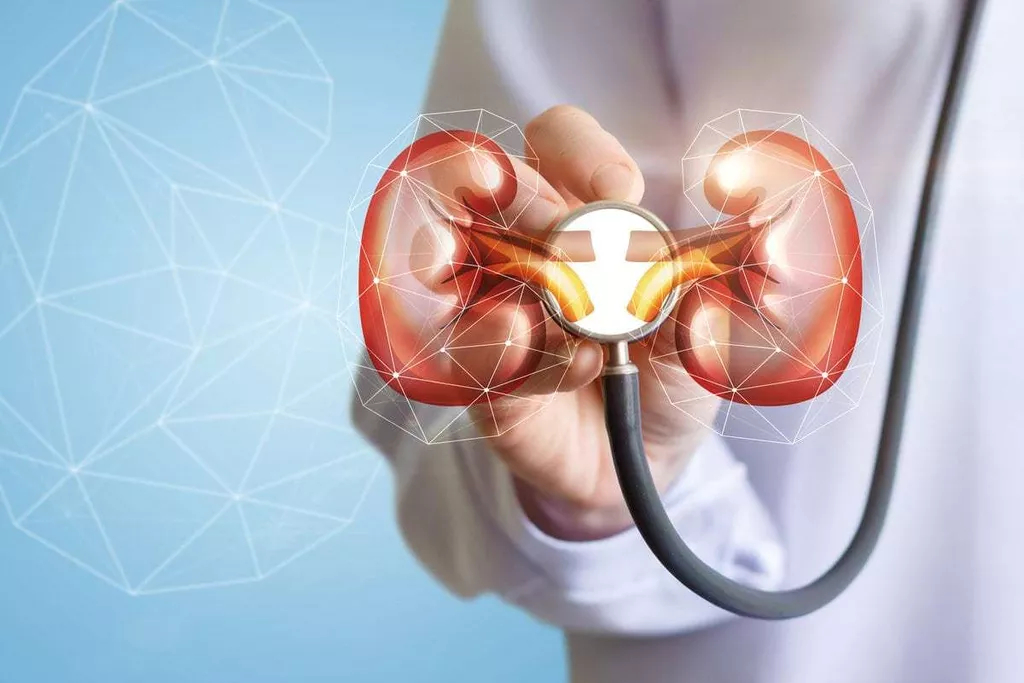Contents
Do not start drinking alcohol to provide these unproven benefits. If you have diabetes, it is important to talk to your doctor about the risks and benefits of alcohol consumption. If you have diabetes, it is important to talk to your doctor about how alcohol can affect your diabetes and what is a safe amount for you to drink, if any.
Calls to any general helpline (non-facility specific 1-8XX numbers) for your visit will be answered by American Addiction Centers . Drinking alcohol can have a negative impact on blood sugar… Diabetics struggling with alcohol misuse or addiction are usually unable to make healthy decisions.

Learn the carbohydrate content of what you are drinking. Websites and apps such as Calorie King can tell you what is in your drink. The more information you have, the easier it will be to manage your BGLs.
When drinking alcohol is combined with the medications most often used to treat diabetes—particularly insulin and sulfonylureas, low blood sugar can result. While a glass of wine with dinner probably isn’t a big deal, a mojito on an empty stomach at happy hour is. When you drink alcohol, your liver thinks it is a toxin that needs to be processed. Until the alcohol is completely processed, your liver will not release a sufficient amount of glucose into your blood which means your BGLs are lower, and may lead to a hypo. Sometimes your BGLs are first raised by the sugar content in some alcoholic drinks and then lowered once your liver starts processing the alcohol.
Facts About Alcohol and Diabetes
Ketoacidosis —even if your blood sugar levels are normal. Vomiting for any reason leads to dehydration which can lead to DKA. While you do need some insulin to cover those carbohydrates, your doctor may suggest reducing your usual insulin-to-carbohydrate ratio to prevent low blood sugars later in the night. “Problematic hypoglycemia” is defined by frequent and unpredictable low blood sugar and is a common trait of alcohol use disorder in T1D. A slew of smartwatches lets people with diabetes monitor blood sugars from their wrists. Dr. Pettus also points out that an additional challenge of determining carbs and calories in drinks is that there is no requirement for alcoholic beverages to have nutrition labels.
Despite the risks, people with diabetes may continue to drink alcohol. However, there are a few things to keep in mind so your blood sugar stays within normal range. Excessive drinking or ‘binge drinking’ can be dangerous for your health.
If you have diabetes you are still able to drink alcohol, but there is a higher risk of your diabetes becoming unstable when alcohol is added to the mix. It is important for you to know about these risks so you can prevent them and avoid dangerous situations. Because alcohol can make your blood sugar rise or fall sharply, you should only drink if your doctor says it’s safe for you to do so. Read on to learn more vital facts about diabetes and alcohol use. Around 34 million adults in the U.S. have diabetes, according to the CDC. This long-term disease affects your blood sugar and can cause serious health problems if you don’t get it treated.

Once in the bloodstream, alcohol travels to cells throughout the body. It eventually winds up in the the liver, which is the only organ that metabolizes alcohol. Diabetes UK has more advice on diabetes and recreational drugs. Make sure someone you’re with knows about your diabetes and how to recognise and treat a hypo.
This conversation starts with simply being honest about the amount of alcohol you drink daily. The diaTribe Foundation has launched a new resource hub to help people with diabetes fight stigma. She added that daily exercise, intuitive eating, and meditation all play important roles in her daily health and ongoing sobriety. Burns says she also used the blood sugar-lowering effect of alcohol to her advantage. With her T1D diagnosis in 2011, Burns says she hoped it would be the “antidote” to her alcoholism, motivating her to stop drinking.
Think when you drink: planning an evening out
The symptoms of diabetes can differ depending on how long you have had the disease and what type of diabetes you have. Your body needs glucose for energy and in order for your cells to process glucose, they need the hormone insulin. Alcohol ingestion and glycaemic control in patients with insulin-dependent diabetes mellitus.

If drugs make you feel spaced out or lose track of time, you might forget to take your insulin. No matter how awful you feel, if it’s a hypo you need to treat it straight away. Half a pint of beer, lager or cider (3.5 per cent) is one unit, too, but be aware that many beer and wines often have a higher alcohol content than this. You’ll be glad to hear it doesn’t have to be any different just because you have type 1 diabetes. But there are a few things you need to bear in mind to make sure you stay healthy. Set your alarm to wake you up a few hours later to check your levels.
Why are women supposed to drink less?
“A lot of people can drink alcohol all day long and still function, but his blood sugar was constantly 50 mg/dL. His liver wasn’t able to store glucose the way it should because it was constantly processing the alcohol he was consuming,” she explains. While alcohol often contains some sugar, the risk of low blood sugar comes hours later when the liver is occupied with processing this toxic liquid from your system. While the liver is busy processing the alcohol, it isn’t accomplishing its normal role of storing and releasing glucose. How different types of alcohol affect your blood sugar and consider making changes to your insulin dosing before, during and after drinking alcohol. If you drink, do it occasionally and only when your diabetes and blood sugar level are well-controlled.
Having low blood sugar when you’re sleeping is potentially dangerous. If you have difficulty waking a person up, call 911 immediately. However, long-term management of diabetes is possible with good diet, sober curious brands to check out if you quit drinking exercise, and medications. Having too much sugar in the blood can lead to serious health problems. Some of which include cardiovascular disease, nerve damage , kidney disease, and eye problems.
- Hypoglycemia occurs because the liver kicks in and works on ridding the body of the alcohol first and is slower to release glucose into the system causing low blood sugar.
- This way, if an emergency arises, medical personnel will know you have diabetes.
- But for diabetics who can’t utilize glucose for energy, it can be devastating.
- These include beers, lagers, wines, liqueurs, and sherries.
- National Institute of Diabetes and Digestive and Kidney Diseases.
Tom and Emma speak about what they do before a night out to make sure they look after their diabetes. Your liver will choose to metabolize the alcohol over maintaining your blood sugar, which can lead to hypoglycemia. The liver often makes this choice when you drink without eating food—so consider snacking while you sip. Whether you have type 1 or type 2 diabetes, it’s important to count your carbs and monitor your blood sugar while drinking.
Pettus urges people with type 1 diabetes to have a “game plan” in place before going out on the town. He suggests having a good notion of the effects of drinks you like, and taking care of any diabetes “business” before you leave home. For example, if you’re on shots, take your basal insulin dose before heading out, and if you use a pump, be sure your infusion site is current. Aside from the fact that most “servings” are larger than the recommended serving, very few people — with or without diabetes — follow these limits. Remember that each round of drinks increases the complexity of balancing booze and blood sugar levels.
Alcohol & Diabetes
You may want to set an alarm for a few hours after you go to sleep to check your blood sugar in the middle of the night. After you drink alcohol, your blood sugar levels can drop up to 24 hours later. Check your blood sugar before and while you’re drinking and then again before you go to bed. With all of this in mind, the risks of drinking alcohol when you have type 2 diabetes may outweigh any benefits.
Vomiting while drinking alcohol
If you are following a calorie-controlled meal plan, one drink of alcohol should be counted as two fat exchanges. If you have diabetes, drinking https://en.forexdata.info/ alcohol may cause your blood sugar to either rise or fall. If your blood sugar levels start to drop, eat simple carbs to prevent hypoglycemia.
The risk of a hypo occurring is possible both during the time you are drinking, as well as for many hours after drinking. If you aren’t careful, you may experience a significant drop in blood sugar levels. Severe hypoglycemia is a medical emergency that can prove fatal if it isn’t treated in time. Your body processes alcohol differently than most foods and beverages. And if you have type 2 diabetes, drinking alcohol may have some benefits—such as lowering glucose levels in the blood—and some real risks, like driving glucose levels down too low.
This is why it’s especially important for your friends and family to know the risks of drinking alcohol with diabetes and the signs of low blood sugar. But that said, alcohol balancing risks, benefits of alcohol presents a unique series of risks for those with diabetes, especially for people with type 1. Always drink alcohol on a full stomach or eat while you are drinking.
Alcohol also dehydrates your body and can cause your blood sugar levels to drop. You may have heard that glucagon is ineffective in treating low blood sugar when you’re drinking. Ask your doctor if you are healthy enough to drink alcohol or if you are on other medications that may not be safe to drink while taking. If you are insulin-dependent, your doctor may suggest adjusting your insulin doses while drinking.
Health Solutions
If you were consuming alcohol until going to sleep at 1 a.m., you could experience delayed low blood sugars throughout the rest of the night and in the morning. In fact, alcohol-induced hypoglycemia can happen up to 12 hours after drinking. This is important to guard against a nocturnal blood sugar drop.
There is no hard and fast rule as to how much insulin to take for each drink you consume. It’s best to pace yourself and learn how your body responds to different types of alcohol. Adult men and women should drink no more than 2 standard drinks a day. The following information on alcohol should be used as a guide. Alcohol affects people differently and some of this information may not apply to all people with type 1 diabetes. Only 4% of people with diabetes binge drink, compared to almost 37% of those without diabetes.


Write a comment: